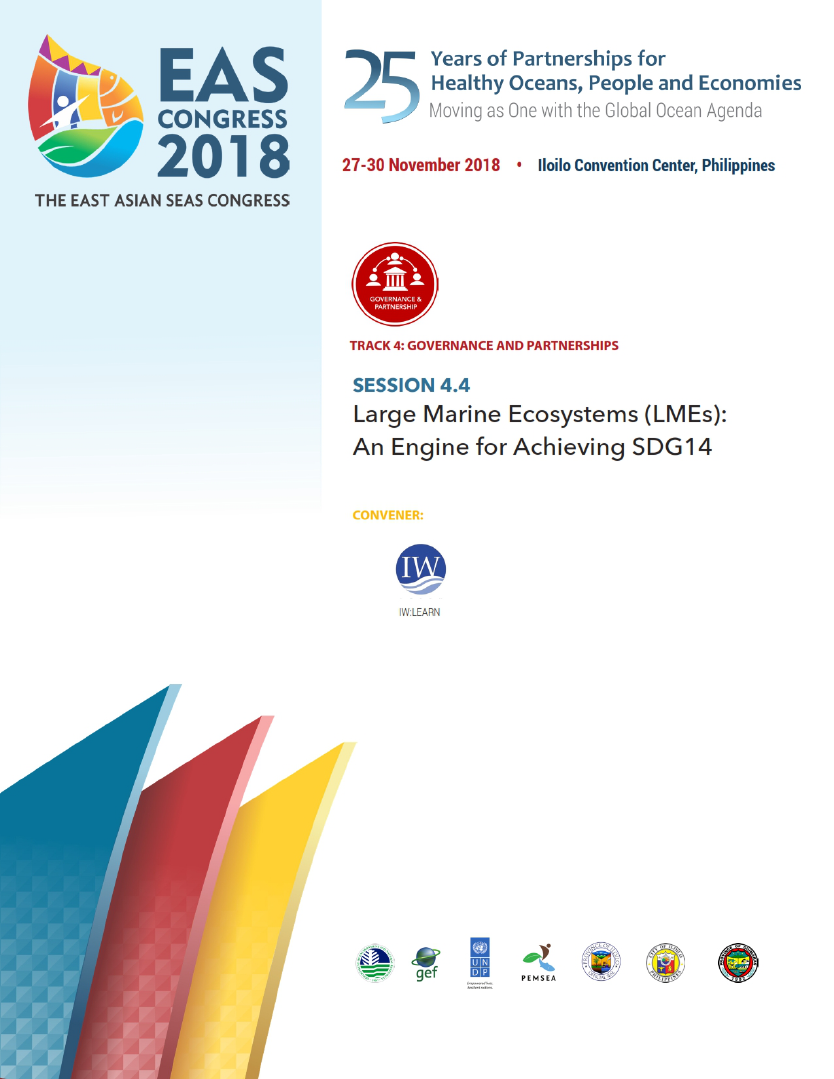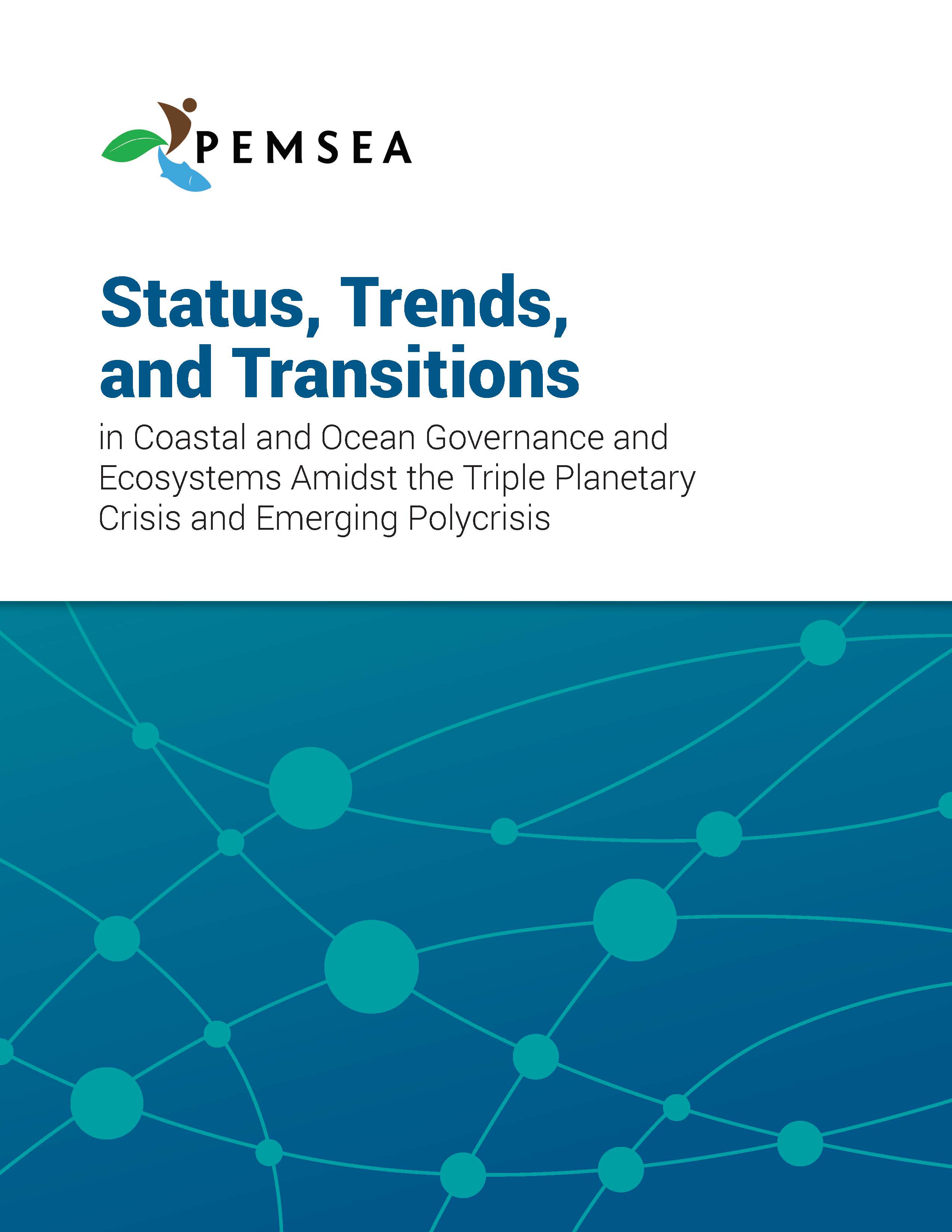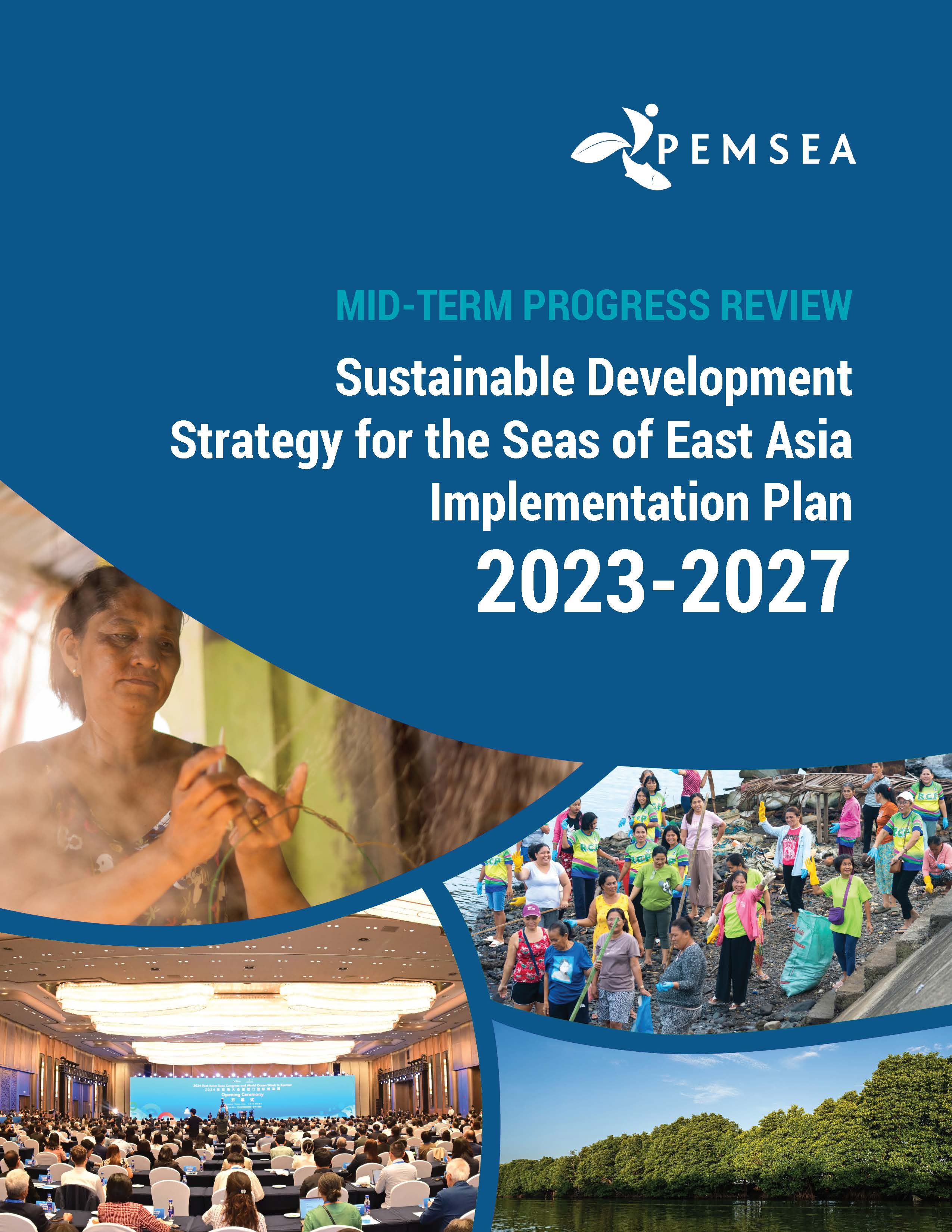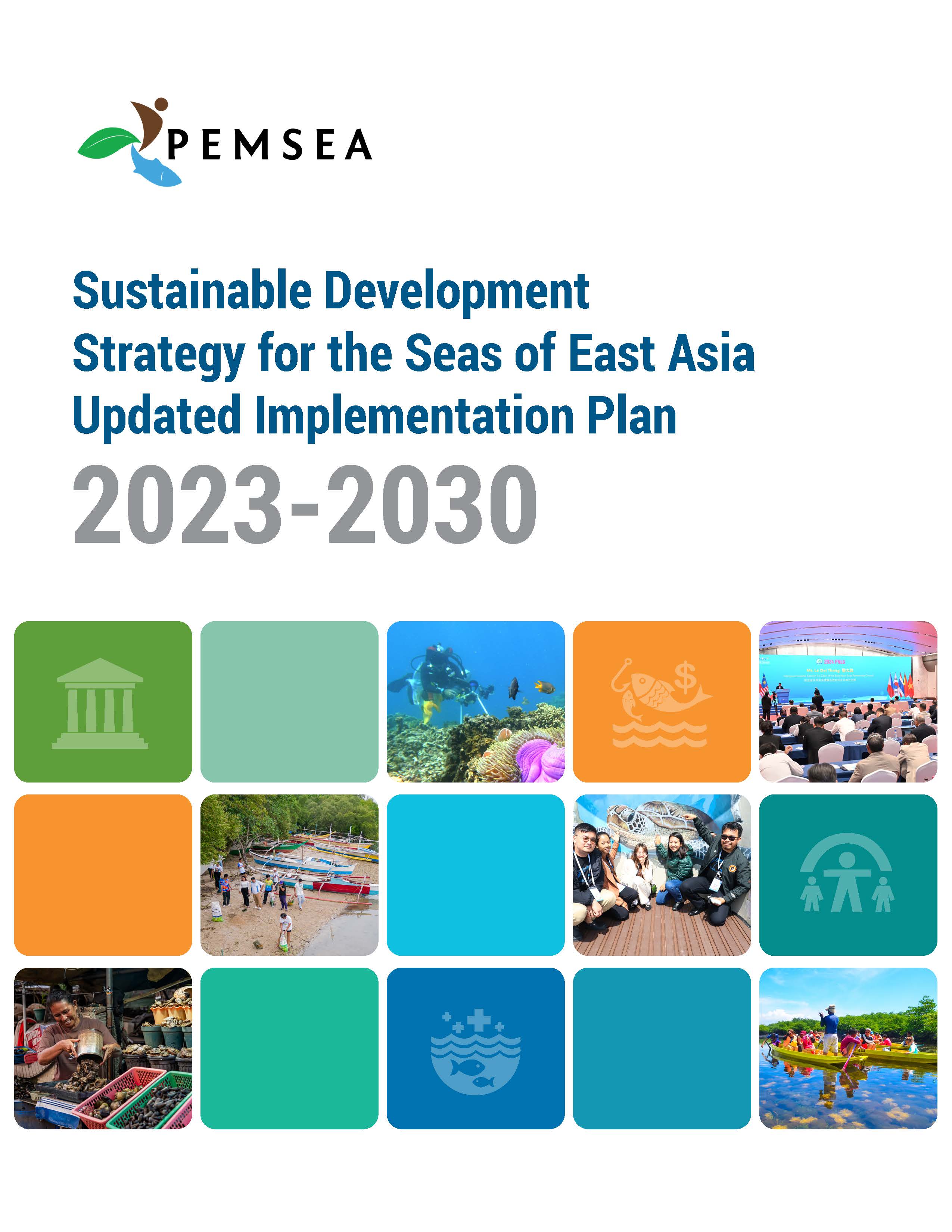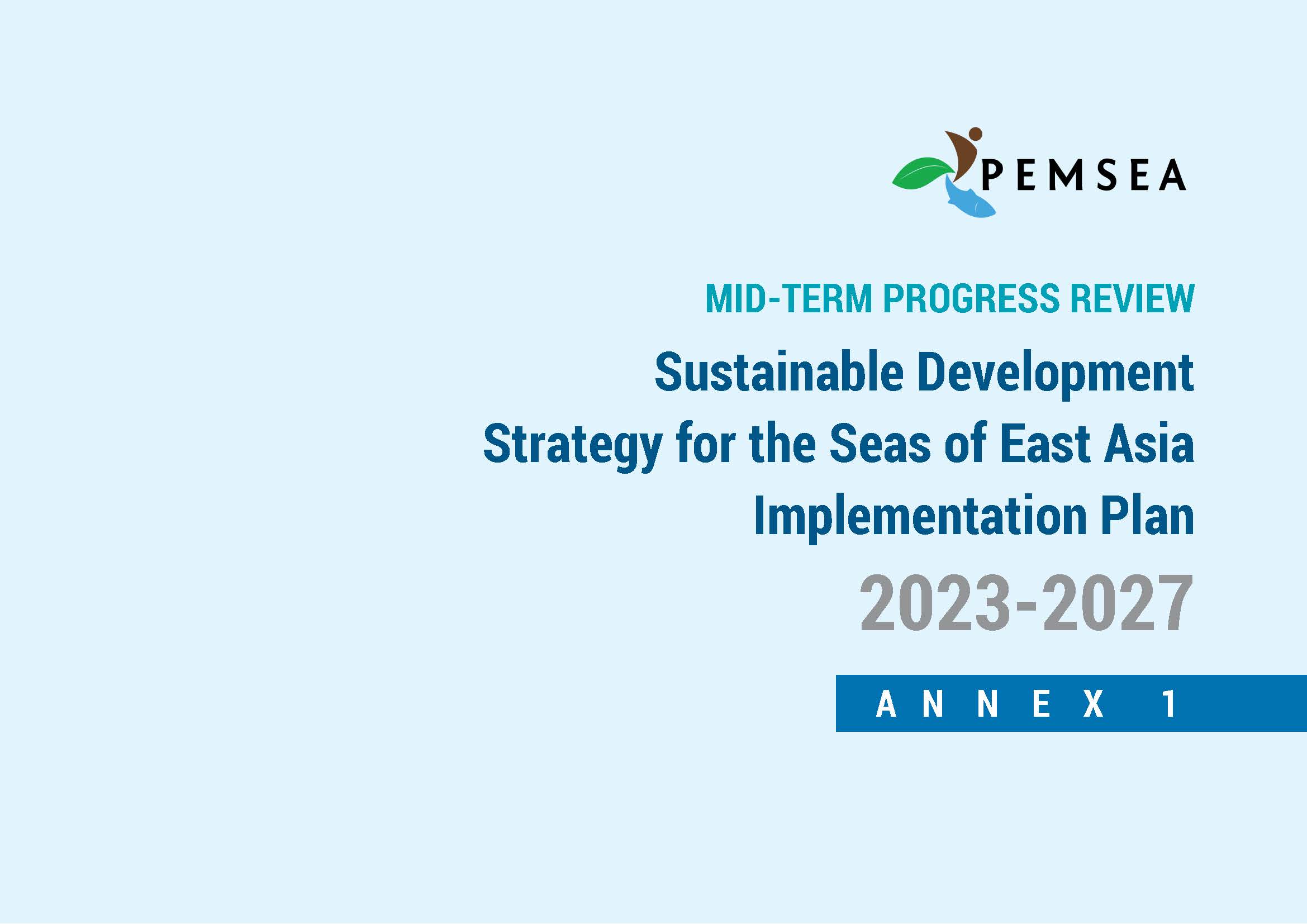
Breadcrumb
Proceedings of the workshop onLarge Marine Ecosystems: An engine for achieving SDG 14 (EASC2018 Session 4 Workshop 4)
PUBLICATION DATE:
Friday, November 30, 2018
PUBLICATION TYPE:
Meeting Documents
STATUS:
Only Available Online
DESCRIPTION:
In 1995, the Global Environment Facility adopted the concept of Large Marine Ecosystems (LMEs) — the majority of which are transboundary — as a conceptual and biogeographic framework for promoting sustainable, ecosystem-based management of the world’s oceans and coasts. The LME approach promotes the creation of new and/or reformed institutions, the reform and implementation of marine resource and environmental management policies and legislation, and the leveraging of public and private sector investment for LME restoration and protection. At a regional scale, the GEF has supported 23 of the 66 recognized Large Marine Ecosystems in which multiple countries collaborate on strategic, long-term ocean governance of transboundary resources.
The Yellow Sea, South China Sea, East China Sea, Sulu-Celebes, Indonesian Sea, Bay of Bengal and Gulf of Thailand are seven LMEs of great ecological and economic importance to the region. The relationships developed through shared project implementation and coordination enables various LME partnerships to help countries incorporate the various SDG14 targets into existing dialogue and policy. Moreover, the forum provided by LMEs encourages important dialogues, emphasizes the exchange of experience and results, provides a focus to scale up existing investments, and catalysis resources towards the achievement of SDG14 targets.
Drawing on the LME experience, this partnership hub not only offered a brief introduction to the Asian LME portfolio in the context of SDG14, but more importantly it highlighted proven approaches that have succeeded in reversing and reducing impacts using integrated ecosystem-based approaches to sustainable ocean and coastal management at both a local and multi-country scale.
RELATED PUBLICATIONS
Status, Trends, and Transitions in Coastal and Ocean Governance and Ecosystems Amidst the Triple Planetary Crisis and Emerging Polycrisis
This comprehensive research report was developed to inform the updating of the Sustainable Development Strategy for the Seas of East Asia (SDS-SEA) Implementation Plan 2023-2030 by synthesizing recent global, regional, and national developments. It examines the interconnected threats of the triple planetary crisis - climate change, biodiversity loss, and pollution - as well as the broader polycrisis of economic and geopolitical instability affecting coastal and ocean governance, including in the East Asian Seas region. The report also assesses the status and trends of traditional and emerging blue economy sectors and outlines the importance of strengthened data and monitoring systems, research and development, policy alignment, and innovative financing as strategic priorities to support a resilient and sustainable ocean future. Ultimately, the report supports the development and refinement of future strategies, particularly the updating of the SDS-SEA Implementation Plan to 2030. Overall, the report highlights PEMSEA’s critical role as a regional integrator in East Asia, bridging local priorities with global commitments to address rapidly evolving challenges and emerging opportunities in coastal and ocean governance and development.
Mid-Term Progress Review of the PEMSEA SDS-SEA Implementation Plan 2023-2027
The Mid-Term Progress Review of the PEMSEA SDS-SEA Implementation Plan (IP) 2023-2027 is an evidence-based assessment covering 2023 to June 2025 that aims to evaluate implementation status, identify challenges, and inform the refinement of the plan toward 2030. The review covers key initiatives of PEMSEA Country and Non-Country Partners, networks, collaborators, and the PEMSEA Resource Facility (PRF), in line with the agreed targets of the SDS-SEA IP.Under Component 1 (Effective Governance), the review highlights the strengthening of PEMSEA’s regional mechanisms through increased voluntary contributions, delivery of various capacity-building initiatives, increasing alignment of PEMSEA Country Partners’ policies and programs with global sustainable and ocean-related commitments, and the increasing project portfolio under PRF management. Progress for Component 2 (Healthy Ocean) is characterized by the expansion of Integrated Coastal Management (ICM) along with other area-based integrated management approaches, the support of PRF-managed projects in biodiversity conservation, fisheries management, land-based and sea-based pollution reduction, waste management, and efforts related to disaster risk reduction and climate change adaptation including the launch of the PEMSEA Blue Carbon Program. Regarding Component 3 (Healthy People), the review emphasizes inclusive stakeholder engagement through the new GESI Action Plan and the success of localized sustainable livelihood programs through PRF-managed projects that have improved community resilience. Finally, for Component 4 (Healthy Economies), the review notes the increasing integration of blue economy principles into national strategies and the adoption of the 2024 Xiamen Declaration, which helps facilitate synergistic actions and sustainable blue financing and public-private partnerships.
Sustainable Development Strategy for the Seas of East Asia (SDS-SEA) Implementation Plan 2023-2030
The Sustainable Development Strategy for the Seas of East Asia (SDS-SEA) Updated Implementation Plan 2023-2030 was established to extend the previous plan's timeframe to 2030, ensuring the continued relevance, effectiveness, and long-term sustainability of PEMSEA’s initiatives while enhancing organizational effectiveness, financial sustainability, and operational efficiency. The updating process was driven by several supporting efforts, including the mid-term progress review of the SDS-SEA IP 2023-2027, a review of status and trends in coastal and ocean governance, results from PEMSEA’s Organizational Capacity Assessment (OCA), and consultations with PEMSEA Country and Non-Country Partners. To bolster results-based management, the plan introduces a Strategy Map and Balanced Scorecard (BSC) as high-level tools for leadership to provide overall strategic direction across four key perspectives: Stakeholder Engagement, Programs and Processes, Learning and Growth, and Financial Sustainability. These high-level tools are supported by a detailed Strategic Results Framework (SRF), which guides operational implementation and performance tracking, with results from the SRF feeding upward to systematically inform the BSC and Strategy Map. Overall, the updated plan is focused on seven Strategic Objectives that are periodically monitored via a two-tiered system with support from various partners and networks, ensuring the plan remains fit for purpose and serves as a guide for adaptive management.
Annex 1 of the Mid-Term Progress Review of the PEMSEA SDS-SEA Implementation Plan 2023-2027
The Annex 1 of the Mid-Term Progress Review of the PEMSEA SDS-SEA Implementation Plan (IP) 2023-2027 is the detailed progress report on each target outcomes from 2023 to 2025 and the remaining target actions and outcomes leading to 2030.
PEMSEA NETWORK OF LEARNING CENTERS (PNLC) 2025 Executive Committee Meeting Proceedings
The 2025 PNLC Executive Committee (PNLC EC) Meeting was organized by PNLC Secretariat on 15 September 2025 in Bogor, Indonesia. It was participated by Prof. Yonvitner of the Center for Coastal and Marine Resources Studies of the IPB University (CCMRS-IPB) and President of the PNLC, Dr. Fang Qinhua, Deputy Director of the Coastal and Ocean Management Institute of Xiamen University (COMI-XU) and Vice-President of the PNLC, and Ms. Aimee T. Gonzales, PEMSEA Resource Facility (PRF) Executive Director as members of the PNLC Executive Committee. Ms. Isdahartatie PNLC secretariat Coordinator/ CCMRS-IPB University, Ms. Nancy Bermas from PRF, Francesca Cortez (PRF Secretariat Assistant) and Lusita Meilana, PNLC Secretariat staff. The meeting was chaired by Prof. Yonvitner. Ms. Isdahartati served as the Secretariat of the meeting.
The following supporting documents are annexed to these proceedings:
- Annex 1: Meeting Agenda / Program
- Annex 2: Links to the meeting documents, presentation and photos
- Annex 3: List of participants
